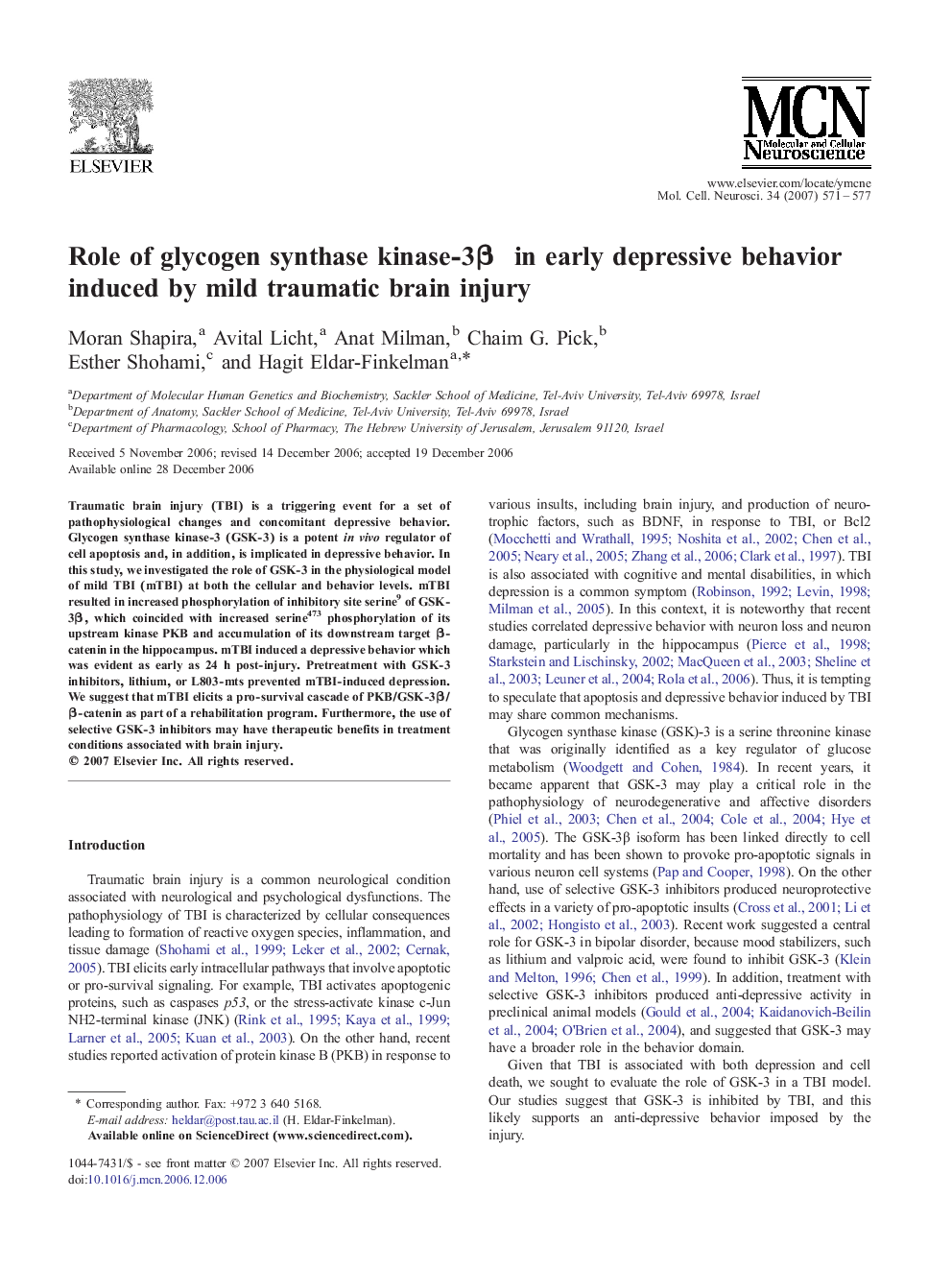| Article ID | Journal | Published Year | Pages | File Type |
|---|---|---|---|---|
| 2199509 | Molecular and Cellular Neuroscience | 2007 | 7 Pages |
Traumatic brain injury (TBI) is a triggering event for a set of pathophysiological changes and concomitant depressive behavior. Glycogen synthase kinase-3 (GSK-3) is a potent in vivo regulator of cell apoptosis and, in addition, is implicated in depressive behavior. In this study, we investigated the role of GSK-3 in the physiological model of mild TBI (mTBI) at both the cellular and behavior levels. mTBI resulted in increased phosphorylation of inhibitory site serine9 of GSK-3β, which coincided with increased serine473 phosphorylation of its upstream kinase PKB and accumulation of its downstream target β-catenin in the hippocampus. mTBI induced a depressive behavior which was evident as early as 24 h post-injury. Pretreatment with GSK-3 inhibitors, lithium, or L803-mts prevented mTBI-induced depression. We suggest that mTBI elicits a pro-survival cascade of PKB/GSK-3β/β-catenin as part of a rehabilitation program. Furthermore, the use of selective GSK-3 inhibitors may have therapeutic benefits in treatment conditions associated with brain injury.
